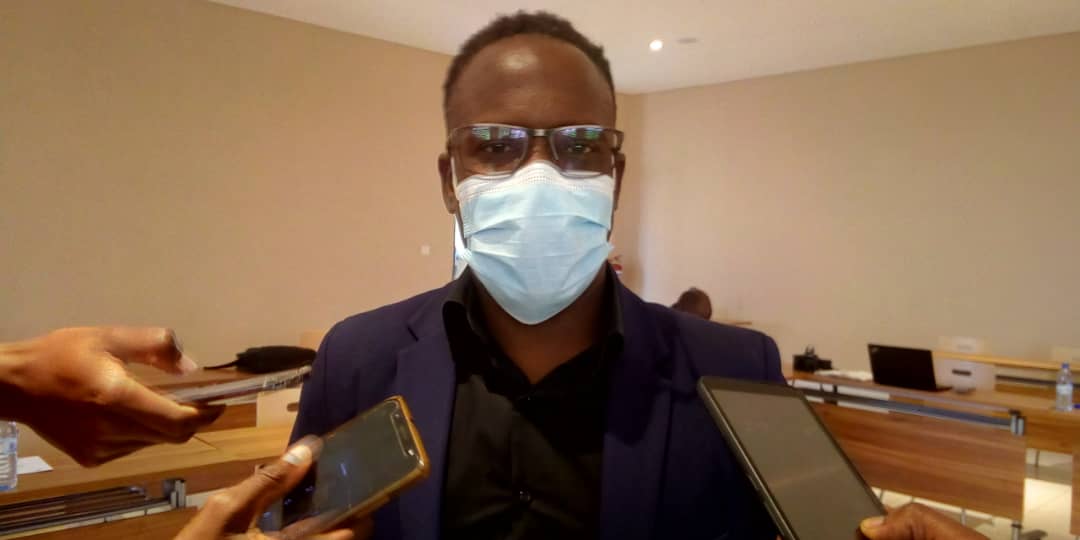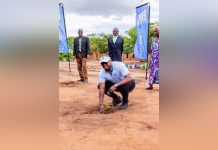Africa-Press – Malawi. The Ministry of Health and Partners in Health (PIH) Malawi say effective information, education and communication (IEC) materials are crucial in encouraging victims of sexual and gender based violence (SGBV) to access treatment and care.
Malawi continues to register a surge in SGBV cases despite the government and non-governmental organizations (NGOs) combining efforts to eliminate the vice.
The Ministry of Health and PIH Malawi have since called for more zeal in the fight against SGBV, adding that the fight should include use of effective IEC to encourage SGBV victims to access essential treatment and care.
Apparently, PIH Malawi, which is also locally known as Abwenzi Pa Za Umoyo (APZU), supported Ministry of Health in conducting a national pre-testing of “effective” SGBV IEC materials that will help bring victims of SGBV to care and treatment.
According to Ministry of Health, the “effective” IEC materials were developed in November last year with support from UNFPA after noting gaps and challenges in relation to awareness of One Stop Centres for SGBV services which government is operating in all district and central hospitals in order to manage victims of SGBV.
The pre-testing exercise for the IEC materials started on 28th June 2021 in Rumphi, Lilongwe, Mzimba, Salima, Ntcheu, Machinga and Blantyre. Speaking during the feedback session at Mponela in Dowa on Friday, the assistant director of clinical services responsible for non-communicable diseases in the Ministry of Health, Hastings Chituzu Chiumia, said the IEC materials needed to be pre-tested first before printing in order to ascertain their usability.
“These IEC materials are very unique. First of their kind, tailored to help victims of SGBV to get the right information in order to go and receive necessary treatment, care and advice. Otherwise, there was no awareness because such IEC materials were not available,” said Chiumia.
Chiumia added that there was also reduction on the part of clients for subsequent SGBV management for hospitals–management such as PEP, or post-exposure prophylaxis, a short course of HIV medicines taken very soon after a possible exposure to HIV to prevent the virus from taking hold in a person’s body.
“There was also a reduction on the part of clients for other follow up treatments like Sexually Transmitted Infections (STIs) treatment and emergency contraceptives,” he added.
In his remarks, adolescent and women health specialist for PIH Malawi, Jimmy Harare, said government has a lot of work to do to support victims of SGBV, hence their rendered support in the pre-testing of the IEC materials.
“We realize that victims of SGBV need to get quality treatment and care services. Government cannot do everything alone. Actually, management of SGBV is one of the core areas that PIH works on. We promote this, especially working with various stakeholders and government departments such as police, social welfare, judiciary and many others,” said Harare.
SGBV is any harmful act of sexual, physical, psychological, mental, and emotional abuse that is perpetrated against a person’s will and that is based on socially ascribed (i.e. gender) differences between males and females.
And, the United Nations (UN) Secretary General, Antonio Guterres, described SGBV, especially against women and girls as, “A menace which takes many forms, ranging from domestic violence to trafficking, from sexual violence in conflict to child marriage, genital mutilation and femicide, and does not only harm the individual, but also has far-reaching consequences for families and the society.”
In Malawi, SGBV takes mostly the forms of child marriage and sexual violence especially against women and girls through rape and defilement. The National Statistical Office reported four years ago that one in three Malawian women and girls between the age of 15 and 49 experiences physical or sexual violence.
President Lazarus Chakwera, expressing worry over the statistics in an address for Human Rights Day on December 10, 2020, observed that SGBV cases continued to rise at the rate of 35 percent in the last three months of that year. Chakwera had said the trend showed that under the restrictions on movement put in place to fight COVID-19, gender-based crimes have been widespread.






